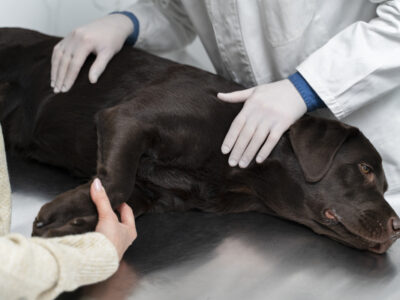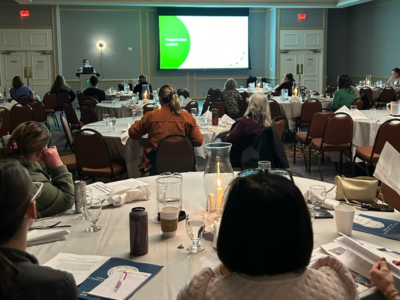As pet lovers, we understand how much our furry companions mean to us. Regarding their health and well-being, nothing matters more than ensuring they receive the best care possible. Sometimes, standard treatments aren’t enough, and surgical intervention becomes essential. Soft tissue surgery for dogs in Portland addresses various critical health issues, from abdominal conditions to tumors, helping pets lead healthier, pain-free lives.
In this blog, we share insights into what this surgery involves, when it might be necessary, and how it benefits dogs. We also emphasize why choosing a top-tier Portland veterinary surgery center, staffed with experienced professionals, is key to giving your pet the best possible outcome.
What Is Soft Tissue Surgery for Dogs?
The term “soft tissue surgery” refers to procedures involving the body’s soft tissues—including muscles, skin, fat, organs, and blood vessels. While orthopedic surgeries focus on bones and joints, soft tissue surgery addresses a wide range of internal and external issues that affect vital organs and other soft structures. This type of surgery plays a crucial role in helping pets overcome health challenges and maintain a better quality of life.
Soft tissue surgery might be necessary for several reasons, such as:
Tumor removal:
Tumors, whether benign or malignant, can develop in various organs or beneath the skin. In many cases, surgical removal is necessary to prevent complications and ensure a pet’s continued health and comfort.
Gastrointestinal issues:
We know how curious pets can be—sometimes a little too curious. When they ingest foreign objects or face gastrointestinal obstructions, surgery often becomes essential. These procedures help clear the blockage or repair the affected area, giving pets the chance to bounce back and enjoy life to the fullest.
Trauma:
Accidents and injuries can happen when we least expect them. In some cases, they lead to internal bleeding or damage to soft tissues, making immediate surgical attention essential to safeguard a pet’s health and well-being.
Urinary or Reproductive Issues:
Certain health conditions, such as bladder stones, pyometra (a serious uterine infection), or other reproductive system issues, may require surgical intervention. Addressing these problems promptly helps ensure dogs can recover comfortably and maintain long-term well-being.
Skin or wound repairs:
Cuts, bite wounds, and other soft tissue injuries are more than just surface-level concerns. In many cases, surgical treatment is needed to ensure proper healing and help pets get back to feeling their best.
Why is soft tissue important for dogs?
Soft tissue surgery plays a crucial role in veterinary care, helping pets live healthier, happier lives. If your dog needs this type of surgery, it’s not just about relieving discomfort—it can be a life-saving procedure. Soft tissue surgery for dogs has many benefits.
Let’s take a closer look at how soft tissue surgery can benefit dogs.
1. Improved Health and Quality of Life
It’s amazing to see how much a dog’s well-being can improve after surgery. Dogs dealing with gastrointestinal issues like bloating or constipation caused by an obstruction often make a full recovery. Once the blockage is resolved, they usually regain their appetite and energy, enjoying a much better quality of life.
2. Pain Relief
When dogs suffer from conditions like abscesses, tumors, or injuries, surgery can offer much-needed pain relief. These issues often cause ongoing discomfort, making it hard for dogs to play, eat, or fully engage with their families. Soft tissue surgery addresses the root cause, helping dogs heal and return to a pain-free, active life.
3. Prevention of Further Health Complications
In some cases, soft tissue surgery isn’t just about treatment—it’s about prevention. Removing a tumor, for example, can stop it from spreading and causing more serious damage. Likewise, addressing gastrointestinal issues like bowel obstructions early can prevent life-threatening complications such as perforation or sepsis. In these situations, Portland veterinary surgery can be a lifesaving solution for your beloved pet.
4. Faster Recovery with Proper Care
Many dogs bounce back quickly after soft tissue surgery, especially when the procedure is performed by experienced veterinarians at a specialized surgical center. With modern surgical techniques and advanced postoperative care, pets experience less discomfort and a faster healing process, helping them return to their happy, active selves sooner.
Why Choose a Veterinary Surgical Center in Portland?
If your dog needs soft tissue surgery in Portland, choosing a veterinary surgical center with the right expertise and experience is essential for a safe and successful procedure.
Here are some reasons why specialized care is crucial:
1. Advanced Surgical Expertise
Portland’s top veterinary surgical centers are staffed with veterinarians who specialize in surgery. These experts are highly trained and experienced in soft tissue surgeries, from simple procedures to more complex operations. Choosing a dedicated veterinary surgery center in Portland ensures that your dog receives focused, expert care from start to finish. At Portland Veterinary Emergency and Specialty Care, our board-certified veterinary surgeons work closely with BOARD-CERTIFIED VETERINARY and support staff to guide your pet through every stage of the surgery and recovery process.
2. State-of-the-Art Facilities and Equipment
A veterinary surgical center is equipped with the latest technology and tools to perform surgeries with precision and safety. Advanced imaging equipment like ultrasound and CT scans, along with specialized surgical tools, help ensure procedures go smoothly. With these resources, your dog receives the highest quality care throughout the surgical process, giving you peace of mind when it matters most.
3. Comprehensive Care and Aftercare
Veterinary surgical centers go beyond performing surgeries—they provide comprehensive care at every stage of the process. From thorough pre-surgery testing to careful anesthesia monitoring and attentive postoperative care, these centers ensure your dog stays comfortable and on the path to a smooth recovery. They also offer expert guidance on at-home care, helping prevent complications and supporting faster healing.
4. Personalized Attention for Your Dog
One of the biggest advantages of choosing a specialized Portland veterinary surgery center is the personalized care your dog receives. These centers understand that every pet is unique, tailoring their approach to fit your dog’s specific needs. Whether it’s a minor procedure or a complex surgery, your furry companion is treated with the highest level of care and attention every step of the way.
PVESC is the best veterinary specialty care for soft tissue surgery for dogs in Portland.
Make the Right Choice: Soft Tissue Surgery for Dogs in Portland for Optimal Health
Choosing a veterinary surgical center with experienced dog surgeons play a crucial role in helping your pet recover well. Expert care not only supports a smoother recovery but can also contribute to a longer, healthier life. Whether your dog needs surgery for an injury, tumor, or stomach issue, proper care makes all the difference. Reach out to a Portland veterinary surgery center to learn how soft tissue surgery can improve your dog’s health and happiness.




